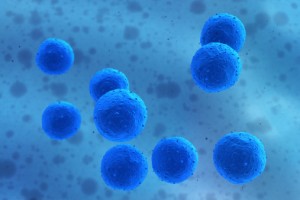 Hematopoietic stem-cell transplants (HSCT) from either cord blood or adult volunteer donors are often used to treat patients with blood or bone marrow cancers.
Hematopoietic stem-cell transplants (HSCT) from either cord blood or adult volunteer donors are often used to treat patients with blood or bone marrow cancers.
The success of unrelated-donor HSCT transplants is dependent upon human leukocyte antigen (HLA) matching. Researchers from the National Marrow Donor Program recently determined the likelihood of finding a suitable unrelated-donor for 21 different ethnic groups in the U.S. registry, which contains over 10 million adult donors and more than 186,000 cord-blood units. Patient ethnicity significantly influenced whether a suitable adult donor or cord blood unit could be matched. Patients of white European ancestry have the best likelihood (75%) of finding a perfect HLA-matched adult donor, while black Americans have the worst likelihood (16-19%). In addition, because the registry contains fewer cord blood units, the likelihood of finding a perfect match is lower. Although most HSCT patients will be able to find an acceptable match, continued research will improve outcomes for HLA-mismatched grafts.
